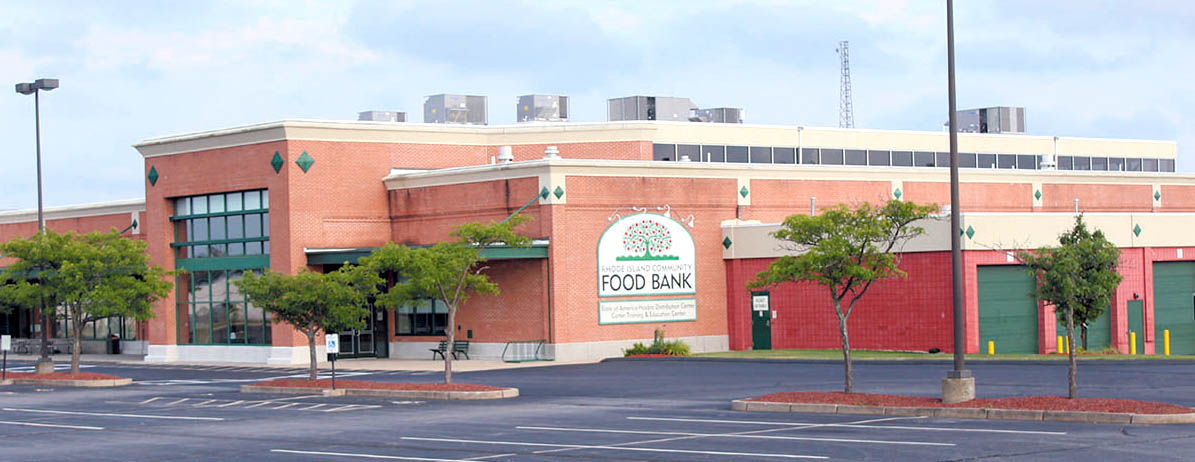
PROVIDENCE – Fundraising is a significant element to a nonprofit’s operations in order for the organizations to serve their respective communities. While organizations regularly receive monetary support, some local nonprofit leaders previously told Providence Business News that local nonprofits have to take a hard look at their business models, and how they raise money, in order to have long-term success.
A small handful of local nonprofit organizations, in an effort to expand their donation portfolios, are now dipping their proverbial toes into accepting a new form of currency that can be both valuable and volatile at the same time.
The Rhode Island Community Food Bank, East Providence-based We Share Hope, the Cranston Public Library Association – a nonprofit subsidiary which helps raise funds for the library – Providence-based Howard Brain Sciences Foundation and the Association of Migraine Disorders in North Kingstown are nonprofits that have confirmed they are accepting, or beginning to accept, cryptocurrency in addition to the traditional fundraising methods they use to bring in money to their organizations.
Cryptocurrency is a digital currency where transactions are verified and records maintained by a decentralized system using cryptography, rather than by a centralized authority – or bank.
Lisa Roth Blackman, the food bank’s chief philanthropy officer, told PBN the organization – which plans to accept up to 70 different cryptocurrencies – began looking at cryptocurrency as an option recently because it wants to be in a position to accept help “anywhere and everywhere.” She also said she saw a case study where the Food Bank for New York City approximately a year ago was contacted by a group wanting to donate a nonfungible token to the organization that ended up being a $1.5 million gift. However, the New York-based food bank didn’t have a way to receive it, Blackman said, and while the organization figured out a workaround, it became a wake-up call.
“It goes to show you that we can’t assume that there are not people here who may have these assets and want to do good in the community, and would like to find places that accept them to see their philanthropic visions come true,” Blackman said.
Edward Garcia, executive director of both the Cranston Public Library and its association, said the library launched its cryptocurrency donation portal at the tail end of last month. Garcia says he started back in early August looking at cryptocurrency as an option and, in his research, he found there could be cryptocurrency investors who are younger and would more likely donate cryptocurrency to a nonprofit instead of traditional cash. We Share Hope Development Director Wendy King Mercurio also said cryptocurrency is being used by younger individuals.
All five local organizations are partnered with Miami-based technology company The Giving Block to help manage their cryptocurrency donation operations. The Giving Block Co-Founder Pat Duffy told PBN cryptocurrency donations are sent by donors to organizations and then immediately liquidated “within a matter of seconds” into U.S. dollars at that cryptocurrency’s price point.
Cryptocurrency is also at times more volatile than the stock market. Back in June, Bitcoin and Ethereum prices substantially dropped and U.S. Congress members proposed legislation to hand regulatory over Bitcoin and Ether to the Commodities Futures Trading Commission in order to regulate the industry, according to the Associated Press.
Duffy, however, says nonprofits are protected from the volatility as they do not have to choose which cryptocurrency is more valuable and the risk of currency values going up or down lies with the donors.
“What matters is that donor sends you 1,000 units of a $1 cryptocurrency, what the nonprofit gets is $1,000 in cash because the minute it hits their account, it’s sold for dollars,” Duffy said. He also noted that as long as nonprofits are not holding cryptocurrencies and dealing with the downside, the organizations, when upward surges occur, benefit greatly.

Local nonprofit leaders also say they are doing, or planning to do, digital campaigns, such as social media posts and e-newsletter blasts, to attract cryptocurrency donors based on guidance they received from The Giving Block as online is where cryptocurrency donors are more active.
Neither the Rhode Island Foundation nor the United Way of Rhode Island were aware of local nonprofits in addition to the food bank accepting cryptocurrency as donations. United Way CEO Cortney Nicolato says nonprofits accepting cryptocurrency donations is unsurprising because with how people are exchanging dollars digitally nowadays, such as through Venmo or Zelle, it requires nonprofits to start thinking of going more digital with fundraising.
However, Nicolato said accepting cryptocurrency is very complex given the high number of different such currencies available, it takes time to find out which cryptocurrency assistance vendors are credible and finding affordable vendors to help nonprofits manage cryptocurrency. The Giving Block charges between $2,500 and $7,500 for various fees and services, and also offers custom services at a unique price dependent to what services a nonprofit is seeking.
“All of that [research] takes time, effort and understanding of the cryptocurrency world. Especially for our smaller organizations, they don’t have a [chief financial officer] or maybe have a part-time head of accounting or whatever that might be,” Nicolato said. “Even developing and determining which organization to use for the processing of cryptocurrency takes time and effort.”
Nicolato did say that assisting nonprofits, especially smaller organizations in Rhode Island, with understanding cryptocurrency “perfectly” falls into the purview of what United Way’s proposed nonprofit resource center could offer. Although it is unclear if cryptocurrency assistance will be offered by the center when it is first launched, Nicolato said.
Crypto can be beneficial for nonprofits, and quickly. Duffy said The Water Project in New Hampshire, through cryptocurrency, raised half of its $4 million budget goal in less than three weeks. He noted another organization that has a $500,000 budget goal, and nearly tripled it with cryptocurrency donations in a very short amount of time.
Garcia, Blackman and Mercurio all say it is too early to tell if cryptocurrency becoming a gamechanger for their respective organizations in terms of raising more funds to support their operations, and do not have exact fundraising goals via cryptocurrency for their respective organizations. Blackman said the food bank has a goal to distribute 15 million pounds of food this fiscal year and the organization has “big budgetary goals to meet in order to make sure we can meet that goal.”
Mercurio said We Share Hope did receive a $108 cryptocurrency donation from The Giving Block, but that’s the lone cryptocurrency donation the organization received since said option launched in February. Garcia said the library is doing a one-year pilot program to see if cryptocurrency can work for it – at least raise $2,500 to cover The Giving Block’s partner cost.
“If [cryptocurrency donations] is successful, it just allows us to do that many more programs, which would be great,” Garcia said.
James Bessette is the PBN special projects editor, and also covers the nonprofit and education sectors. You may reach him at Bessette@PBN.com. You may also follow him on Twitter at @James_Bessette.
![]() Want to share this story? Click Here to purchase a link that allows anyone to read it on any device whether or not they are a subscriber.
Want to share this story? Click Here to purchase a link that allows anyone to read it on any device whether or not they are a subscriber.
Read More:Some R.I. nonprofits beginning to accept cryptocurrency donations
2022-09-05 12:00:16
